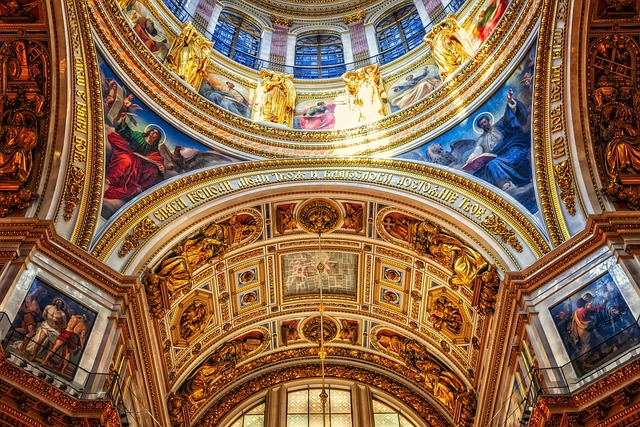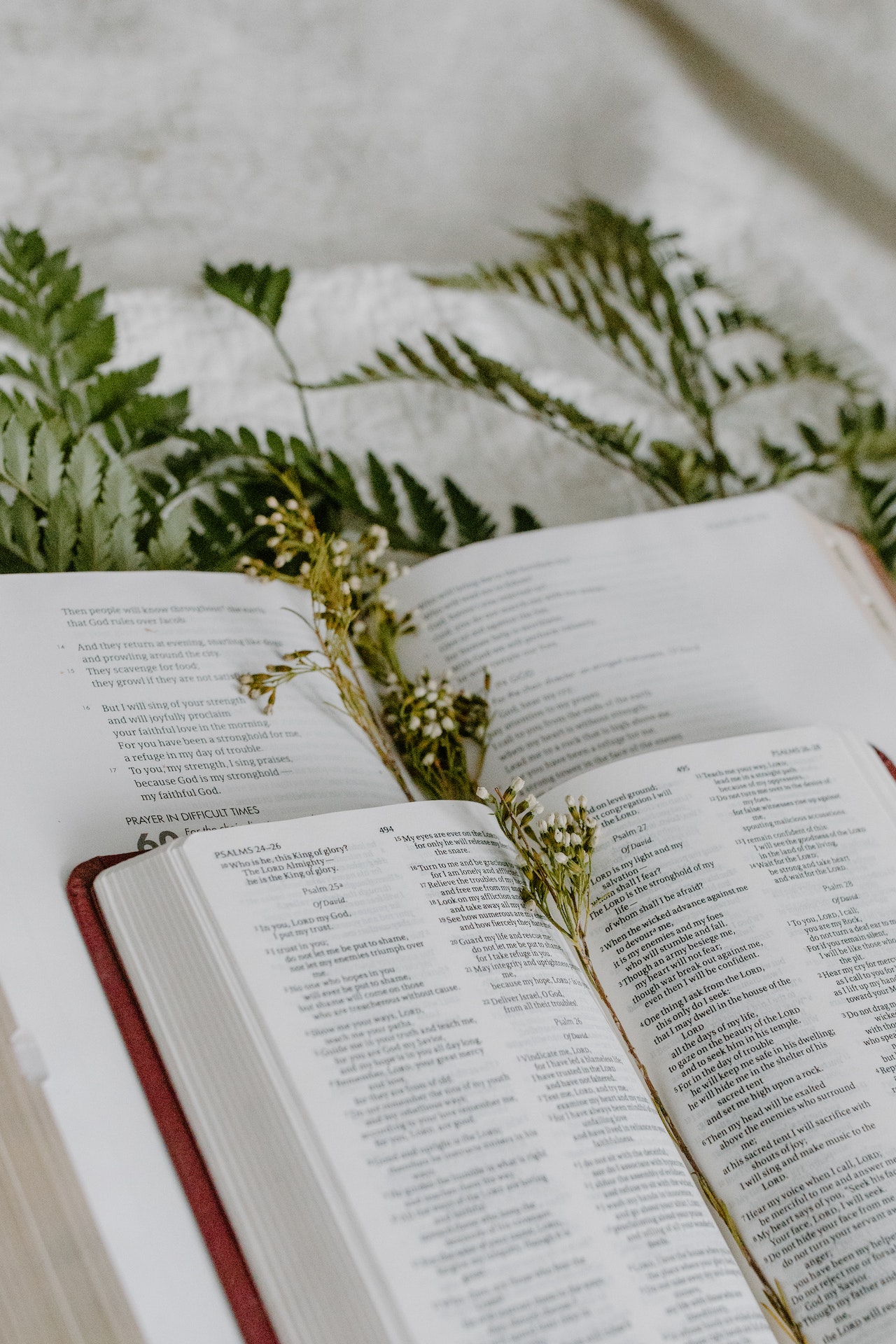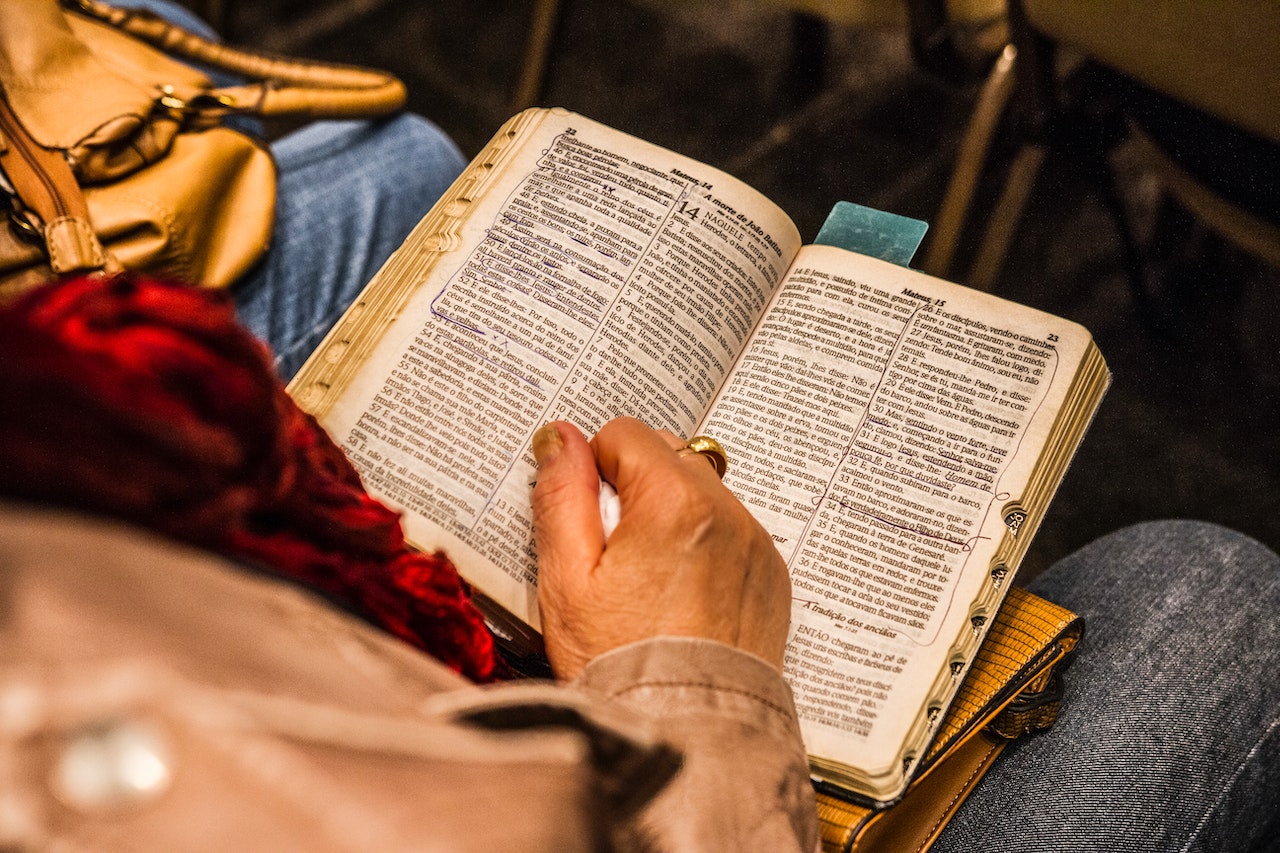Yes, it is possible to be both Orthodox and Catholic. While the Orthodox Church and the Catholic Church have distinct theological and liturgical differences, there are individuals who identify as both Orthodox and Catholic, often referred to as “Eastern Catholics” or “Eastern Orthodox Catholics.” These individuals typically follow the traditions and practices of the Orthodox Church while recognizing the authority of the Pope. However, it is important to note that this dual affiliation may not be universally accepted by all members of either church.
Table of Contents
The Similarities and Differences Between Orthodox and Catholic Beliefs
Can I Be Orthodox And Catholic?
If you’ve ever wondered whether it’s possible to be both Orthodox and Catholic, you’re not alone. Many people find themselves drawn to both traditions and are unsure if they can embrace both. In this article, we will explore the similarities and differences between Orthodox and Catholic beliefs to help you navigate this question.
Let’s start with the similarities. Both Orthodox and Catholic churches trace their roots back to the early Christian church. They share a common belief in the Holy Trinity – Father, Son, and Holy Spirit. Both traditions also hold the Bible as a sacred text and believe in the importance of sacraments, such as baptism and communion.
Another similarity between Orthodox and Catholic beliefs is the veneration of saints. Both traditions honor and seek the intercession of saints, believing that they can pray for us and help us on our spiritual journey. This practice is often misunderstood by those outside these traditions, but it is an integral part of their faith.
However, there are also significant differences between Orthodox and Catholic beliefs. One of the most notable differences is the role of the Pope. In the Catholic Church, the Pope is considered the head of the Church and has authority over all Catholics worldwide. In contrast, the Orthodox Church does not recognize the Pope’s authority and instead operates under a system of autocephaly, where each national church has its own leader.
Another difference lies in the understanding of original sin. While both traditions believe in the concept of original sin, they have different interpretations of its effects. The Catholic Church teaches that original sin is inherited from Adam and Eve and can only be cleansed through baptism. On the other hand, the Orthodox Church believes that baptism removes the guilt of original sin but does not eradicate its effects entirely. They believe that the process of theosis, or becoming one with God, is necessary to overcome the effects of original sin.
The issue of the filioque clause also sets Orthodox and Catholic beliefs apart. The filioque clause was added to the Nicene Creed by the Western Church, stating that the Holy Spirit proceeds from both the Father and the Son. This addition was not accepted by the Eastern Church, leading to a major theological disagreement between the two traditions. While this may seem like a minor detail, it has had significant implications for the relationship between Orthodox and Catholic churches throughout history.
So, can you be both Orthodox and Catholic? The answer is not a simple yes or no. While there are similarities between the two traditions, there are also significant differences that cannot be ignored. It ultimately comes down to personal belief and conviction. Some individuals may find that they can embrace both traditions and find common ground in their faith. Others may feel more comfortable identifying with one tradition over the other.
In the end, what matters most is a sincere and genuine relationship with God. Whether you choose to identify as Orthodox, Catholic, or both, it is important to seek spiritual growth and understanding. Embrace the similarities, respect the differences, and let your faith guide you on your journey.
Navigating the Challenges of Being Both Orthodox and Catholic

Can I Be Orthodox And Catholic?
Navigating the Challenges of Being Both Orthodox and Catholic
Have you ever found yourself torn between two religious traditions? Perhaps you were raised in a Catholic family but have recently discovered the beauty and depth of the Orthodox faith. Or maybe you have always been drawn to the rich liturgical traditions of the Orthodox Church but still feel a deep connection to the teachings of the Catholic Church. Whatever the case may be, the question remains: can you be both Orthodox and Catholic?
The answer to this question is not a simple one. Both the Orthodox and Catholic Churches have distinct theological and liturgical traditions that set them apart from one another. However, there are individuals who identify as both Orthodox and Catholic, finding ways to navigate the challenges that come with embracing both traditions.
One of the main challenges faced by those who seek to be both Orthodox and Catholic is the issue of authority. The Catholic Church recognizes the authority of the Pope as the successor of St. Peter, while the Orthodox Church does not. This can create a tension for individuals who wish to embrace both traditions, as they may find themselves torn between two different understandings of ecclesial authority.
Another challenge is the differences in liturgical practices between the two traditions. The Catholic Mass and the Orthodox Divine Liturgy have distinct rituals and prayers, which can make it difficult for individuals to fully participate in both. However, some individuals have found ways to incorporate elements from both traditions into their worship, creating a unique blend of Catholic and Orthodox practices.
Despite these challenges, there are individuals who have successfully embraced both the Orthodox and Catholic traditions. They often describe their journey as a process of discernment and exploration, seeking to find common ground between the two faiths while also respecting their differences. For some, this means attending both Catholic and Orthodox services, participating in the sacraments of both traditions, and seeking guidance from clergy in both churches.
It is important to note that being both Orthodox and Catholic does not mean compromising one’s beliefs or diluting the richness of either tradition. Rather, it is a personal journey of faith that requires a deep understanding and appreciation for both the Catholic and Orthodox faiths. It is a way of embracing the fullness of the Christian tradition and seeking unity in the midst of diversity.
In conclusion, the question of whether one can be both Orthodox and Catholic is a complex one. It requires individuals to navigate the challenges of authority and liturgical practices while also seeking to find common ground and unity. While it may not be an easy path to walk, there are individuals who have successfully embraced both traditions, finding a way to be both Orthodox and Catholic. Ultimately, it is a personal journey of faith that requires discernment, exploration, and a deep love for both the Catholic and Orthodox traditions.
Exploring the Historical and Theological Connections Between Orthodoxy and Catholicism
Can I Be Orthodox And Catholic?
If you’ve ever found yourself wondering whether it’s possible to be both Orthodox and Catholic, you’re not alone. Many people are curious about the historical and theological connections between these two branches of Christianity. In this article, we’ll explore these connections and shed some light on whether it’s possible to embrace both traditions.
To understand the relationship between Orthodoxy and Catholicism, it’s important to delve into their shared history. Both traditions trace their roots back to the early Christian Church, with the Orthodox Church claiming to be the original Church founded by Jesus Christ himself. The Catholic Church, on the other hand, believes in the primacy of the Pope as the successor of Saint Peter, who was appointed by Jesus to be the head of the Church.
Despite their historical differences, Orthodoxy and Catholicism share many theological beliefs. Both traditions affirm the Holy Trinity, the divinity of Jesus Christ, and the importance of the sacraments. They also share a common belief in the authority of Scripture and the teachings of the early Church Fathers.
One of the key differences between Orthodoxy and Catholicism lies in their understanding of the papacy. While the Catholic Church recognizes the Pope as the supreme authority in matters of faith and morals, the Orthodox Church rejects this notion. Instead, the Orthodox Church operates on a conciliar model, where decisions are made collectively by bishops in council.
Given these differences, it may seem challenging to be both Orthodox and Catholic. However, there are individuals who identify as both Orthodox and Catholic, often referred to as “Orthodox in communion with Rome.” These individuals embrace the Orthodox liturgical and spiritual traditions while recognizing the authority of the Pope.
The concept of being both Orthodox and Catholic is not without controversy. Some Orthodox Christians view it as a betrayal of their tradition, while some Catholics question the validity of such a dual affiliation. However, there are also those who see it as a way to bridge the gap between the two traditions and promote unity within Christianity.
It’s important to note that being both Orthodox and Catholic is not officially recognized by either Church. The Orthodox Church does not recognize the authority of the Pope, and the Catholic Church does not officially recognize the validity of Orthodox sacraments. Therefore, individuals who identify as both Orthodox and Catholic often face challenges and may not be fully accepted by either tradition.
Ultimately, the question of whether one can be both Orthodox and Catholic is a deeply personal one. It requires careful consideration of one’s beliefs, values, and spiritual journey. It’s important to engage in open dialogue with clergy and seek guidance from trusted spiritual advisors.
In conclusion, the historical and theological connections between Orthodoxy and Catholicism are undeniable. While there are individuals who identify as both Orthodox and Catholic, it is not officially recognized by either Church. The question of whether one can be both Orthodox and Catholic is complex and requires personal discernment. Regardless of one’s decision, it’s crucial to approach this topic with respect and understanding for both traditions.
Personal Reflections on Embracing Both Orthodox and Catholic Traditions
Can I Be Orthodox And Catholic?
As someone who has grown up in a family with both Orthodox and Catholic traditions, I have often found myself pondering the question of whether it is possible to embrace both faiths. It is a topic that has sparked many debates and discussions among theologians and believers alike. In this personal reflection, I would like to share my thoughts and experiences on this matter.
First and foremost, it is important to acknowledge that Orthodox and Catholic traditions have many similarities. Both faiths believe in the Holy Trinity, the divinity of Jesus Christ, and the importance of the sacraments. They also share a rich history and a deep reverence for the saints and the Virgin Mary. These commonalities have allowed me to find a sense of unity and connection between the two traditions.
However, it is also crucial to recognize that there are significant theological differences between Orthodoxy and Catholicism. The issue of papal authority, for instance, has been a point of contention for centuries. While the Pope is considered the head of the Catholic Church, Orthodox Christians do not recognize his authority in the same way. This difference in governance and hierarchy can sometimes create tension and challenges when trying to navigate both traditions.
Despite these differences, I have come to believe that it is possible to embrace both Orthodox and Catholic traditions in a meaningful way. For me, it is not about choosing one over the other, but rather finding a balance and harmony between the two. I have found that focusing on the core teachings and values of both faiths has allowed me to create a unique spiritual path that feels authentic and fulfilling.
One way I have found this balance is by attending both Orthodox and Catholic services. Each tradition offers its own distinct rituals and liturgies, and experiencing both has deepened my understanding and appreciation for the richness of our Christian heritage. I have found solace in the familiar chants and incense of the Orthodox Church, as well as the reverence and beauty of the Catholic Mass.
Another aspect that has helped me reconcile both traditions is studying the writings and teachings of theologians from both Orthodox and Catholic backgrounds. By delving into the works of theologians such as St. John Chrysostom and St. Thomas Aquinas, I have gained a broader perspective and a deeper understanding of the theological nuances that exist between the two traditions. This has allowed me to appreciate the diversity within Christianity and to see the beauty in different interpretations of our shared faith.
Ultimately, being both Orthodox and Catholic is a deeply personal journey. It requires introspection, open-mindedness, and a willingness to embrace the complexities and contradictions that come with it. It is not always an easy path, and there may be moments of doubt and confusion. However, I believe that the search for truth and the desire to grow spiritually are worth the challenges that may arise.
In conclusion, while the question of whether one can be both Orthodox and Catholic may continue to spark debates, I have found that it is possible to embrace both traditions in a way that feels authentic and meaningful. By focusing on the commonalities, attending services from both traditions, and studying the teachings of theologians from both backgrounds, I have been able to create a spiritual path that honors both my Orthodox and Catholic heritage. It is a journey that has enriched my faith and deepened my connection to God.
Conclusion
Yes, it is possible to be both Orthodox and Catholic. While there are theological and doctrinal differences between the two traditions, some individuals may find ways to reconcile their beliefs and practices in order to identify with both Orthodox and Catholic traditions. However, it is important to note that this may vary depending on individual perspectives and the specific teachings of each tradition.
For licensing reasons, we must provide the following notice: This content was created in part with the help of an AI.


